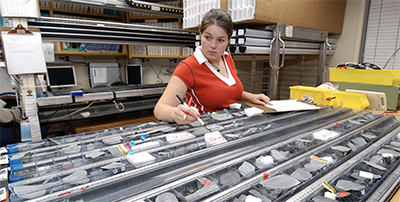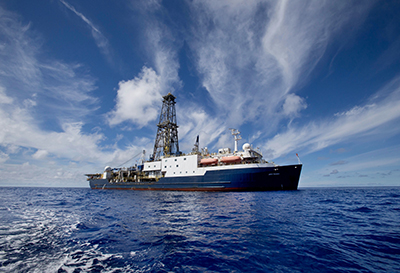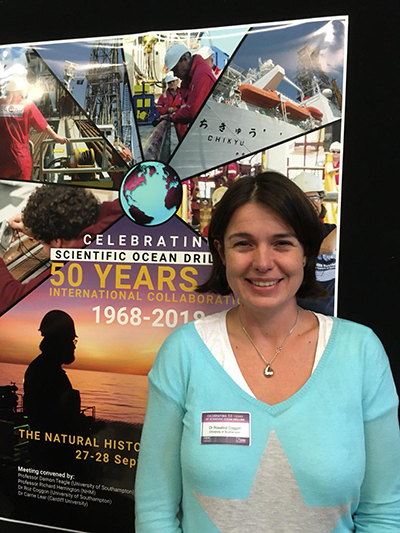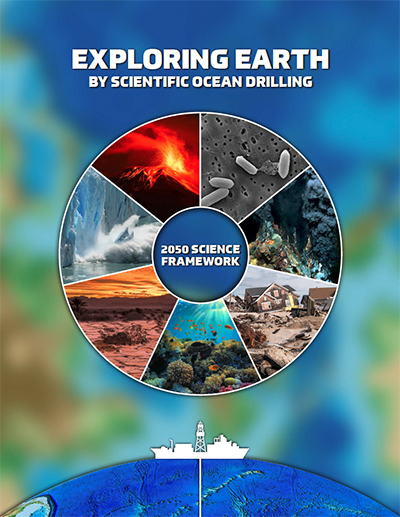Rosalind M. Coggon
University of Southampton
Citation
Rosalind Coggon conducts exciting multidisciplinary science using scientific ocean drilling samples and data. She has taken a leadership role in the community, including serving as co-editor of the new 2050 Science Framework: Exploring Earth by Scientific Ocean Drilling. Rosalind has been a proponent on several drilling proposals and was selected as a co-chief scientist on the upcoming Expeditions 390/393 South Atlantic Transect. Rosalind’s research focuses on fluid chemistry, flux and pathways in oceanic crust. Using archive samples and fluids taken on Ocean Drilling Program Leg 168 from the eastern flank of the Juan de Fuca Ridge, she showed that carbonate veins produce robust records of past fluid chemistry. This research established for the first time a clear link between the alteration of basement rocks as recorded by secondary minerals (the carbonate veins) and the chemistry of near-basement sedimentary pore fluids (which are assumed to be representative of the basement fluids responsible for low-temperature alteration of the upper crust). A significant follow-up to this work used carbonate veins to reconstruct the elemental composition of past seawater. These data indicate that before the Neogene oceanic magnesium/calcium and strontium/calcium ratios were lower than in the modern ocean by a factor of 3! This study has implications for element exchange between the solid Earth, the changing chemistry of seawater and the atmosphere. A quick look at citations shows the impact of Rosalind’s work on topics such as ocean acidification, atmospheric carbon dioxide concentrations and the carbonate compensation depth. In addition to the familiar magnetic stripes, that the ocean crust preserves past records of the ocean and Earth system is a major conceptual paradigm shift. Rosalind was the lead proponent of a proposal to conduct multidisciplinary science along a transect in the South Atlantic that was so well received that it was allocated two upcoming expeditions, 390 and 393. The broad scientific ocean drilling community is probably most familiar with Dr. Coggon’s immense role in developing the 2050 Science Framework. The first phase involved workshops, and Rosalind was co-chair of the Scientific Committee for the European Consortium for Ocean Research Drilling Expanding Frontiers of Scientific Ocean Drilling Workshop. Rosalind was selected to present results from the workshop at the JOIDES Resolution Facility Board Meeting, the Integrated Ocean Drilling Program Forum and the initial meeting of what became the Science Framework Working Group. Her thoughtful insights and contributions were recognized by the working group, and she was asked and agreed to serve as co-editor. The framework has been enthusiastically endorsed by the scientific community.
— Gail Christeson University of Texas at Austin Austin, Texas
Field Photos





